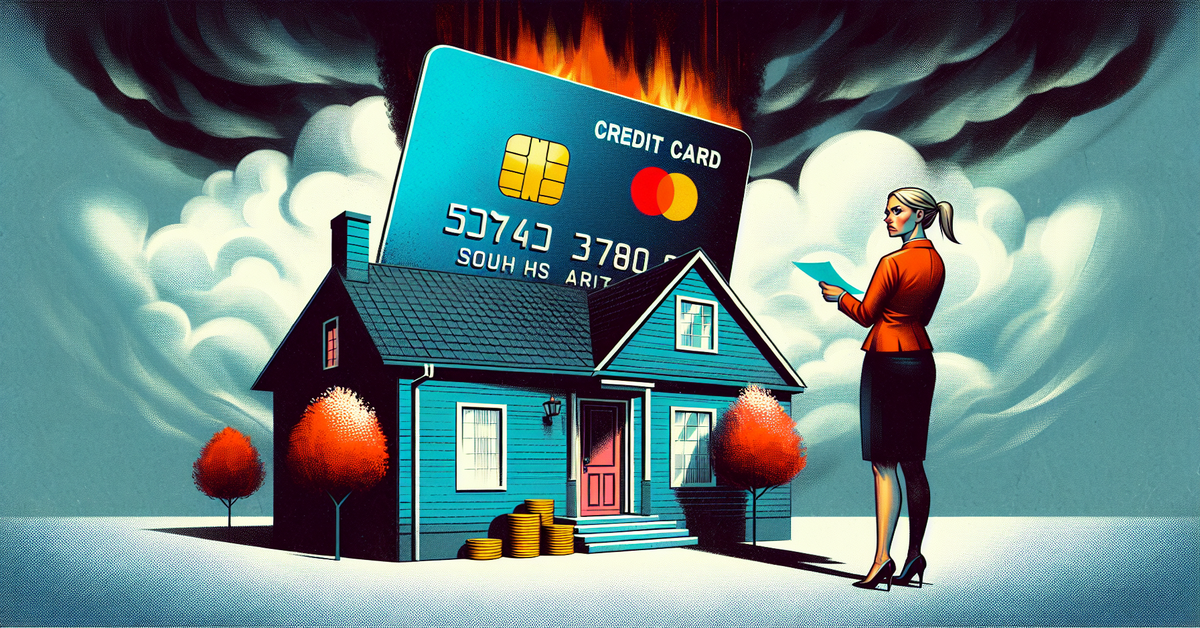You might be wondering if a credit card company can actually take your house if you fall behind on payments. While it's not as straightforward as it seems, the implications of unpaid credit card debt can impact your home more than you think. If a creditor secures a judgment against you, they could place a lien on your property, complicating your financial situation considerably. So, what steps can you take to safeguard your home and avoid such dire consequences? Understanding the legal landscape is essential, and there are several factors to take into account moving forward.
Understanding Credit Card Debt
Understanding credit card debt involves recognizing how it accumulates through high-interest rates and fees, which can quickly lead to financial instability if not managed properly. Each month, unpaid balances accrue interest, often compounding, making it challenging to pay off the principal. Additionally, late payments can incur hefty fees, further increasing your debt. It's essential to track your spending and payment patterns to avoid falling into a cycle of debt. If you're only making minimum payments, it could take years to settle your balance, resulting in paying considerably more than the original amount borrowed. Establishing a budget and prioritizing debt repayment can help you maintain financial safety and prevent overwhelming financial burdens. Understanding these principles is critical for effective credit management.
How Debt Collection Works
Debt collection involves a systematic process where creditors seek to recover unpaid debts, often escalating from initial reminders to more aggressive tactics if payments aren't made. Understanding this process can help you navigate potential challenges safely. Here's how debt collection typically works:
- Initial Contact: Creditors send reminders via mail or phone.
- Follow-Up: If unpaid, they may contact you multiple times.
- Third-Party Collections: Creditors may hire collection agencies to pursue the debt.
- Legal Action: As a last resort, creditors can file lawsuits to recover the money owed.
Being aware of these stages allows you to respond appropriately and protect your interests. Ignoring debt can lead to severe consequences, so staying informed is essential.
Legal Rights of Creditors
Creditors possess specific legal rights that enable them to pursue debts, which can escalate to serious actions, including the potential for a lien against your property if obligations remain unpaid. When you fail to meet your financial responsibilities, creditors may resort to legal measures, such as suing you for the owed amount. If they win, they can obtain a judgment, allowing them to place a lien on your home. This lien can prevent you from selling or refinancing your property until the debt is resolved. Additionally, creditors may have the right to garnish your wages or seize assets. It's essential to understand these rights, as they highlight the importance of managing your debts proactively to safeguard your home and financial stability.
Protecting Your Home
To protect your home from potential risks associated with unpaid debts, it's crucial to implement strategic financial practices and stay informed about your rights and options. Here are some key steps you can take:
- Create a Budget: Track your income and expenses to guarantee you're living within your means.
- Build an Emergency Fund: Set aside savings to cover unexpected expenses, helping you avoid debt.
- Stay Informed About Your Rights: Know the laws regarding debt collection and foreclosure in your state.
- Consult a Financial Advisor: Seek professional advice to develop a solid financial plan tailored to your situation.
Alternatives to Consider
Exploring alternatives to traditional debt repayment methods can provide you with viable options to protect your home and financial future. One option is debt consolidation, which combines multiple debts into a single payment, often at a lower interest rate. This can simplify your finances and reduce stress. Another alternative is negotiating with creditors for a settlement, which may allow you to pay less than what you owe. Consider exploring credit counseling services, where professionals can guide you through budgeting and repayment strategies. Finally, a home equity line of credit (HELOC) might offer a lower interest option for borrowing against your home's value. Each choice comes with risks and benefits, so evaluate them carefully to find the best fit for your situation.



